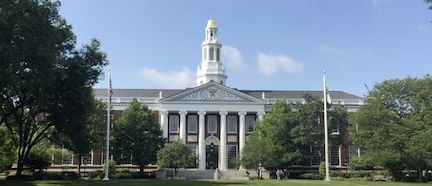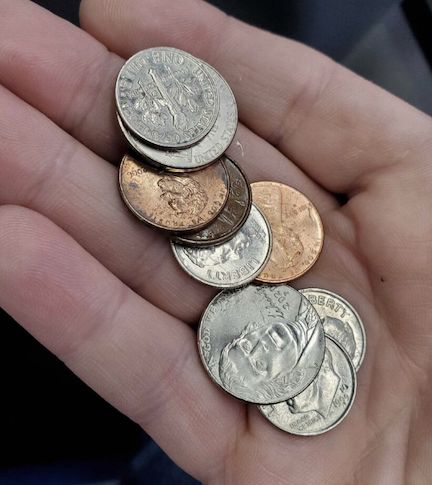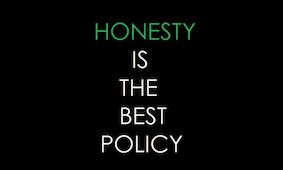Does it Really Pay to Break the Rules
She was paid $1 Million per year to research and teach on the topics of "honesty and ethical behavior," but no longer. As of May 28, 2025, Harvard University researcher Francesca Gino has lost her tenure.
Why? Mik Olson of Not the Bee reports:
"The honesty professor has been officially canned for dishonesty while conducting studies on [wait for it!] ... dishonesty. ... So now we have an ethics expert embroiled in a legal battle over whether she cooked the academic books — you really can't make this stuff up. ... Anyways, word on the street is that Harvard is looking for a new ethics professor! Only requirement: Be Ethical."

Publisher Michael Shermer of Skeptic Magazine tweeted it this way:
Harvard behavioral scientist Francesca Gino, who was paid $1 million a year to study honesty and ethical behavior, was accused of manipulating observations to better support her conclusions. Now lost tenure. Do they still teach irony at Harvard?
The accusations ranged from data falsification to plagiarized passages in some of her high-profile publications.
Ironically (errr, unironically), Professor Gino actually produced a video short several years ago entitled "Rebel Talent: Why It Pays to Break the Rules at Work and in Life."
Yep, you really CAN'T make this stuff up!
With instructional videos on the benefits of breaking the rules, is it any wonder this "ethics" and "honesy" professor would find herself on the wrong side of, well, ethics and hoesty?
Hypocrisy is the sworn enemy of the frutiful Christian life. We love to put our best face forward, virtue signalling our ethical and honest Christian walk and lifestyle, all while self-justifying our bending of the rules, a little here, a little there, until finally, our sins are found out. "Nothing is covered up that will not be revealed, or hidden that will not be known" (Luke 12:2, ESV).
In the end, it's hard to live a lie. Honesty is ALWAYS the best policy.
"You hypocrite, first take the log out of your own eye, and then you will see clearly to take the speck out of your brother's eye" (Matthew 7:5, ESV).
"You hypocrites! Well did Isaiah prophesy of you, when he said: ‘This people honors me with their lips, but their heart is far from me; in vain do they worship me, teaching as doctrines the commandments of men’" (Matthew 15:7-9, ESV).
"Having the appearance of godliness, but denying its power. Avoid such people" (2 Timothy 3:5, ESV).
Even Small Acts Of Honesty Can Be Huge
Back in 1997 a Brinks armored truck was involved in a crash. It ended up dumping hundreds of thousands of dollars onto a street in Miami, Florida. Witnesses and spectators rushed to the scene — not to help, but to steal! Onlookers, grabbing fists of cash from the street, sidewalk, and gutters, ran from the area, never to be seen again. Others simply found cash and coin after the fact, not knowing when or how the money was deposited there. Police, in desperation, put out an offer of amnesty for any who would return their take of the dumped payload.
Only two people steppef forward:
MIAMI (CNN) -- A mother of six and a school boy are the only ones to have returned money they found in the street after an armored truck overturned in a Miami neighborhood Wednesday.
Only Faye McFadden, who returned $19.53, and 11-year-old Herbert Tarvin, who gave back 85 cents, took advantage of a police offer of amnesty for anyone returning money by last weekend.
Little Herbert said that he had to "do the right thing and turn the money in becuase it doesn't belong to me."

Eighty-five cents. Eighty-five cents out of hundreds of thousands of dollars. Doesn't sound like much, does it? And yet it might as well have been millions. Herbert didn't "steal" the change he recovered from the street; he simply found it there. But his heart was to do the right thing.
Sometimes "the right thing" comes in small acts of obedience. It's in the daily, small gestures of honesty and obedience that character is forged.
“One who is faithful in a very little is also faithful in much, and one who is dishonest in a very little is also dishonest in much" (Luke 16:10, ESV).
"His master said to him, ‘Well done, good and faithful servant. You have been faithful over a little; I will set you over much. Enter into the joy of your master'" (Matthew 25:23, ESV).
"You shall not steal," (Exodus 20:15, NIV).
Honesty Is The Best Policy
When I was a small boy growing up in Mississippi, my Granny was often a source of wisdom, unconditional love, good cooking, and entertainment. I'll never forget a lesson she taught me by accident about honesty. We had stopped at a convenience store after church, where she intended to get a Sunday paper from the machine out front. She gave me a quarter and told me to run get two papers, one for her and one for my mother.
I got to the machine and saw that a Sunday paper was 25 cents, and I shouted to her as she sat in the car that I would need another quarter. Granny said, "No, baby, just put the quarter in the slot, open the door, and get two papers out of the machine." I must have looked puzzled because she repeated herself a little louder.
About that time a customer walked out of the store, so when I proceeded to explain that I couldn't get two papers out of the machine without putting in two quarters, she shushed me, got out of the car, and said, "Just get in the car." I climbed into the car and watched as she put the quarter into the slot, opened the door, and retrieved two newspapers.
As the metal door slammed shut and she began to walk away, she was suddenly stopped short by the strap of her big, black purse hanging on her arm. She had accidentally caught the purse in the paper machine. With the door closed, she was stuck.
After a frustrating moment of indecision, Granny fished around, produced a second quarter, and freed herself from captivity. It was all I could do to keep from laughing, but something told me to keep that lesson to myself.

The Bible teaches us that stealing is always wrong and that it is what we do in our private moments that define our character and prove our witness to those around us. Doing the right thing is not one option among others for the Christian, it is a mandate.
Even when the compromise seems small, even when it appears no one is looking or is likely to be harmed, our theft, our lie, our disregard for what is right has consequences.
“Whoever is simple, let him turn in here! And to him who lacks sense she says, 'Stolen water is sweet, and bread eaten in secret is pleasant.' But he does not know that the dead are there, that her guests are in the depths of Sheol" (Proverbs 9:16-18, ESV).